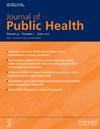利用叙事纠正带有政治色彩的健康误导,解决情感信念回响问题
IF 3.6
4区 医学
Q1 PUBLIC, ENVIRONMENTAL & OCCUPATIONAL HEALTH
引用次数: 0
摘要
背景 2020 年 5 月,新闻机构报道了有关美国疾病控制中心 (CDC) COVID-19 的错误信息。纠正有关疫情和政治的错误信息尤其具有挑战性。即使在成功更正后,情感信念的回声仍会继续影响受众。叙事和情感流学术研究表明,具有积极结局的叙事纠正可以减少信念回响。因此,本研究调查了以释怀结尾的叙事纠错法在纠正有关疾病预防控制中心的错误信息方面的效果。方法 在 2020 年 5 月 29 日至 6 月 4 日期间,我们测试了叙事纠正这一错误信息的效果。美国的参与者(N = 469)通过 Qualtrics 面板参加了在线信息实验,并随机接受了叙述式纠正、说教式纠正或无纠正。结果 与对照组和说教式纠正相比,叙述式纠正导致对错误信息的认可度降低。对于政治温和派和保守派的参与者来说,叙述式纠正通过缓解对感知到的疾病预防控制中心的能力和佩戴口罩的意愿产生了积极的间接影响。结论 疾病预防控制中心等公共卫生机构应考虑利用带有积极情绪结尾的叙事信息来纠正错误信息。叙事能更好地解决情感信念的回响问题,尤其是对反态度受众而言。本文章由计算机程序翻译,如有差异,请以英文原文为准。
Using narratives to correct politically charged health misinformation and address affective belief echoes
Background In May 2020, news outlets reported misinformation about the Centers for Disease Control (CDC) related to COVID-19. Correcting misinformation about outbreaks and politics is particularly challenging. Affective belief echoes continue to influence audiences even after successful correction. Narrative and emotional flow scholarship suggest that a narrative corrective with a positive ending could reduce belief echoes. Therefore, this study investigated the efficacy of a narrative corrective with a relief ending for correcting misinformation about the CDC. Methods Between 29 May and 4 June 2020, we tested the effectiveness of a narrative to correct this misinformation. Participants in the United States (N = 469) were enrolled via Qualtrics panels in an online message experiment and randomized to receive a narrative corrective, a didactic corrective or no corrective. Results The narrative corrective resulted in lower endorsement of the misinformation compared with the control and the didactic corrective. The narrative corrective had a positive indirect effect on perceived CDC competence and mask wearing intentions for politically moderate and conservative participants via relief. Conclusions Public health institutions, such as the CDC, should consider utilizing narrative messaging with positive emotion endings to correct misinformation. Narratives better address affective belief echoes, particularly for counter-attitudinal audiences.
求助全文
通过发布文献求助,成功后即可免费获取论文全文。
去求助
来源期刊

Journal of Public Health
医学-公共卫生、环境卫生与职业卫生
CiteScore
7.40
自引率
2.30%
发文量
120
审稿时长
6-12 weeks
期刊介绍:
Previous Title Zeitschrift für Gesundheitswissenschaften, Previous Print ISSN 0943-1853, Previous Online ISSN 1613-2238.
The Journal of Public Health: From Theory to Practice is an interdisciplinary publication for the discussion and debate of international public health issues, with a focus on European affairs. It describes the social and individual factors determining the basic conditions of public health, analyzing causal interrelations, and offering a scientifically sound rationale for personal, social and political measures of intervention. Coverage includes contributions from epidemiology, health economics, environmental health, management, social sciences, ethics, and law.
ISSN: 2198-1833 (Print) 1613-2238 (Online)
 求助内容:
求助内容: 应助结果提醒方式:
应助结果提醒方式:


